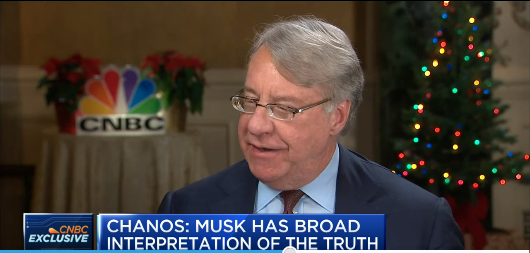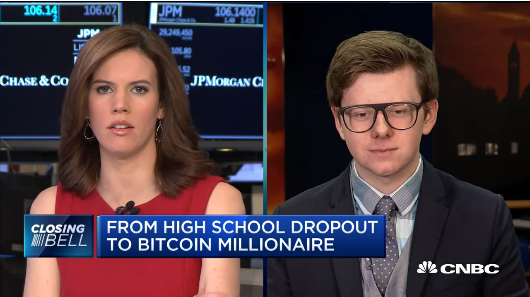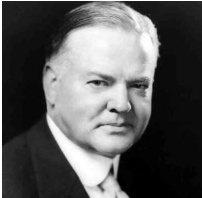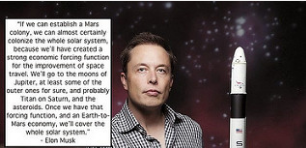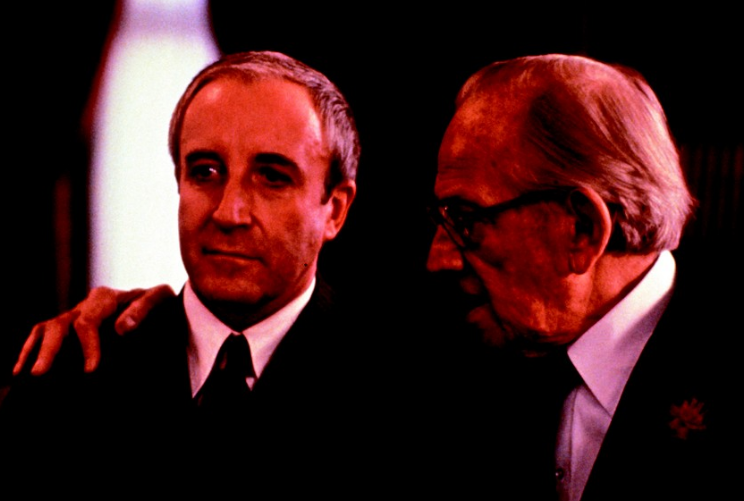Popular Delusions: Markets, Musk, Murray and Bitcoin
As I write Cryptocurrency brand numero uno #1--Bitcoin--is trading near $18,680. MarketWatch says “The Dow is about to set a record at setting records.” Musk’s money losing colossus-Tesla-is trading over $341 a share, and according to John Ganz in The Baffler, Murray Rothbard was the “philosophical harbinger of Trump and the alt-right.”
Jim Grant makes the bold prediction in the latest “Grant’s Interest Rate Observer” that fuddy-duddy yellow metal, gold, will outperform gold 2.0 in 2018. Cameron Winklevoss, would say Grant needs to step into the 21st Century. Mr. Winklevoss, one half of the bitcoin billionaire Winklvi, “thinks the cryptocurrency’s blazing gains this year are just the start. He predicts it will rise as much as 20-fold as investors come to view it as an upgrade to gold,” reports Bloomberg Technology.
Ironically, Winklevoss bases his bitcoin price guess on the market value of gold. He pegged the gold market at $6 trillion. With the Bitcoin market at $300 billion, the crypto needs to leap 20 times to match gold’s total market valuation.
“We think that bitcoin is a gold disruptor,” Winklevoss said in a telephone interview on Friday, predicting it may yet appreciate by 10 to 20 times its current value. “We think it’s just the beginning. We are definitely holders.”
Economic historian and author, Edward Chancellor, has his doubts, writing for Reuters,
But if that time comes, bitcoin won’t be a contender. Its technology is simply too inefficient. Transactions on the network are too expensive, massively energy intensive and can take days to settle. Amazon won’t take payment in bitcoin. The U.S. government won’t accept bitcoin for the payment of taxes. In short, bitcoin as money is going nowhere, except in the markets where it’s been heading vertically upwards. It resembles the gold prospector’s fabled sardine tin: good for trading but not for eating.
Meanwhile, Tesla bear Jim Chanos was clear when asked what he valued Tesla equity shares at--zero. Like the current President of these United States, Elon Musk, Chanos points out, has “ a broad interpretation of the truth. There have been all kinds of announcements that this company has made … that turned out not to be true."
Musk fans, shareholders and bondholders have yet to take him to task for his fibbing. Meanwhile the famed short-seller doesn’t care where the shares started or how much they’ve ascended in price. He has added to his short position and simply says, "We think the equity is worthless," in the interview on "Closing Bell.
Stock market records will keep being set says David Kostin at Goldman Sachs.
“The bull market will continue in 2018. Our ‘rational exuberance’ rests on a combination of above-trend U.S. and global economic growth, low, albeit slowly rising interest rates, and profit growth aided by corporate tax reform likely to be adopted by early next year. Assuming tax reform passes, we forecast 2018 S&P 500 EPS will jump by 14% to $150 and the index will advance by 11% to 2,850 at year-end 2018. If tax reform fails, S&P 500 will fall near-term by 5% to 2,450.”
John Hussman takes the other side of the argument, writing
Across history, the evaporation of paper wealth following periods of speculation has repeatedly taught a lesson that is never retained for long. Unfortunately, the lesson has to be relearned again and again because of what J.K. Galbraith referred to as “the extreme brevity of the financial memory.” Speculation is dangerous because it encourages the belief that just because prices are elevated, they must somehow actually belong there. It encourages the belief that the paper itself is wealth, rather than the stream of future cash flows that investors can expect their securities to deliver over time.
The popular delusion being posited that Murray Rothbard is somehow the father of the alt-right and, “Rothbard, who died in 1995, would’ve loved Donald Trump, and he seems to have foreseen his rise as if in a dream,” wrote Justin Raimondo, is an attempt to make Murray the boogie man yet again.
While it’s possible Murray would have gotten a kick out of Trump’s antics, to say that he’d have loved him assumes Murray would have enjoyed hearing Trump’s constant lies, stupidity and hyperbole. Justus Doenecke writes, and Lew Rockwell has said, “Rothbard refuses to suffer fools gladly.”
Rothbard mentioned Trump once,
“One myth about “debtors” relief is that debtors are habitually poor and creditors rich, so that intervening to save debtors is merely a requirement of egalitarian “fairness.” But this assumption was never true: in business, the wealthier the businessman the more likely he is to be a large debtor. It is the Donald Trumps and Robert Maxwells of this world whose debts spectacularly exceed their assets. Intervention on behalf of debtors has generally been lobbied for by large businesses with large debts.”
Louis Roanet writes, “In short, Donald Trump is an entrepreneur in a crony capitalist regime, he is half politician, half entrepreneur.”
I doubt this description would make Trump desirable to Rothbard. Plus, now that he is president, Trump’s missile launching, saber rattling, trade sanctioning, and easy-money Fed loving would likely have turned Murray off. As for the p***y grabbing, I don’t know.

